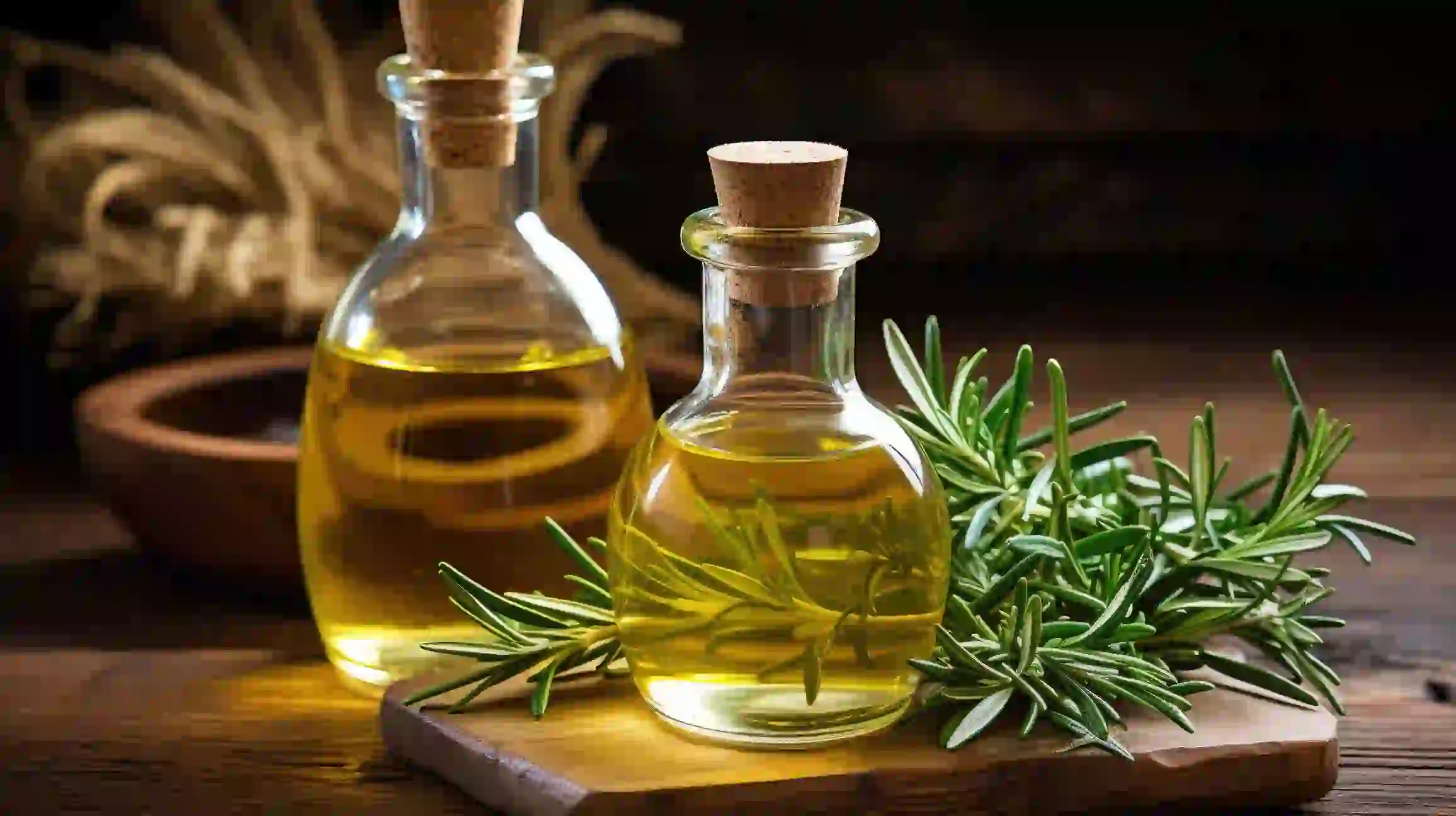If you have thin hair that lacks volume and strength, essential oils offer a natural solution. In this article, we’ll explore five powerful Essential oils for thin hair that can help nourish, strengthen, revitalize and giving fuller and healthier look. Discover how these oils can transform your hair care routine and bring life back to your hair.
Why Delicate Hair Requires Extra Attention
Fragility
- Thin hair is more delicate and easily breaks because each strand has a smaller diameter. Such hair is more prone to damage from brushing, styling, and environmental factors.
Lack of Volume
- Thin hair naturally has less volume, which makes it appear flat and lifeless. Special care, such as using volumizing products and techniques, is essential to achieve a fuller appearance.
Oiliness
- Thin hair becomes oily more quickly because the lower strength of the hair causes the scalp’s natural oils to be absorbed faster.
- This gives a greasy look, so it’s important to use gentle cleansing and lightweight products.
Scalp Visibility
- With thin hair, the scalp is more visible, making hair loss or thinning more noticeable.
- Proper care helps maintain scalp health and minimizes this issue.
Styling Challenges
- Thin hair has difficulty holding styles, so special products and techniques are necessary to maintain curls, waves, or any desired style.
- Using the right hair products can help thin hair hold styles better and appear more voluminous.
Causes of Thin Hairs
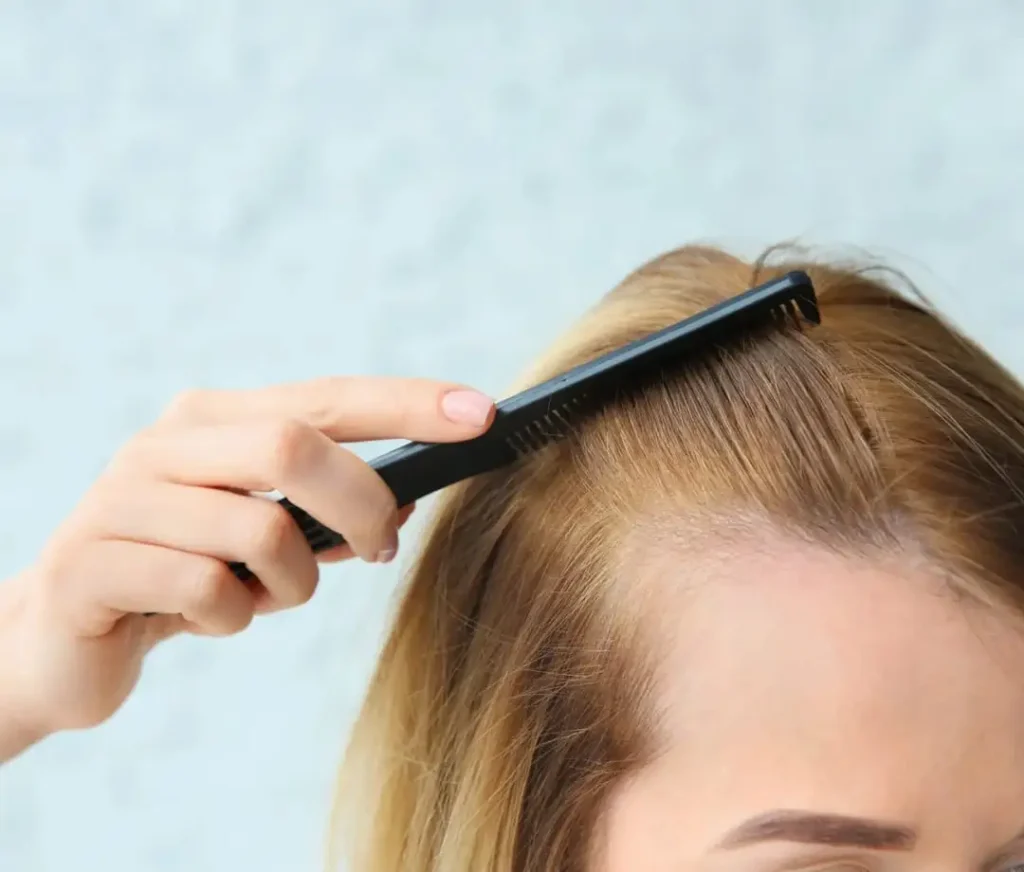
Genetics
- Genetic factors play a significant role in hair thickness. If your parents or grandparents had thin hair, it can also affect you, impacting the density and diameter of your hair strands.
Hormonal Changes
- Hormonal changes, such as those during pregnancy, menopause, or due to thyroid imbalances, can lead to hair thinning. Conditions like polycystic ovary syndrome (PCOS) can also affect hair density.
Nutritional Deficiencies
- A lack of vitamins also affects hair strength.
- If your diet is lacking essential nutrients (e.g., vitamins A, C, D, E, iron, zinc, proteins), it can weaken your hair, making it thin.
- Poor diet or malabsorption can reduce the supply of nutrients to hair follicles.
Stress
- Chronic stress can disrupt the hair growth cycle, causing a condition called telogen effluvium, where more hair falls out than usual, making it thin.
Medical Conditions
- Autoimmune disorders (e.g., alopecia areata), scalp infections, and chronic illnesses can cause hair thinning. Conditions related to the thyroid or hormone-producing glands can also be culprits.
Overuse of Hair Products
- Excessive use of harsh chemical treatments, dyes, and styling products can damage your hair, causing it to break and thin. Frequent heat styling can also weaken hair.
Aging
- With age, hair naturally becomes thinner and finer. The rate of hair growth slows, and hair follicles shrink, leading to reduced hair density and thickness.
Poor Scalp Health
- If your scalp is unhealthy, such as from dandruff, fungal infections, or excessive oil production, it can impair hair follicles, leading to thin hair.
Medications And Treatments
- Some medications, like those used for chemotherapy or high blood pressure, can have hair thinning as a side effect. Some treatments can disrupt the natural hair growth cycle.
Hormonal Medications
- Birth control pills and hormone replacement therapies can alter hormone levels, leading to temporary or permanent hair thinning
How Essential Oils Improve The Health of Thin Hair
Promote Hair Growth
- Some essential oils, like rosemary and peppermint, stimulate blood circulation in the scalp. These oils help with hair growth and assist in thickening thin hair.
Strengthen Hair
- Essential oils like lavender and cedarwood have properties that strengthen hair follicles and improve overall hair health. This reduces breakage and makes hair more resilient.
Add Volume
- Essential oils such as ylang-ylang balance oil production and improve hair texture, making hair appear fuller and more voluminous.
Enhance Shine
- Oils like Argan and jojoba add natural shine to thin hair, making it look healthy and vibrant without adding weight.
Improve Scalp Health
- Essential oils such as tea tree and eucalyptus have antimicrobial properties that help maintain a healthy scalp environment. A healthy scalp is essential for optimal hair growth and minimizing issues like dandruff, which can affect thin hair.
Some Beneficial Essential Oils For Thin Hair
1: Benefits of Rosemary Hair Oil
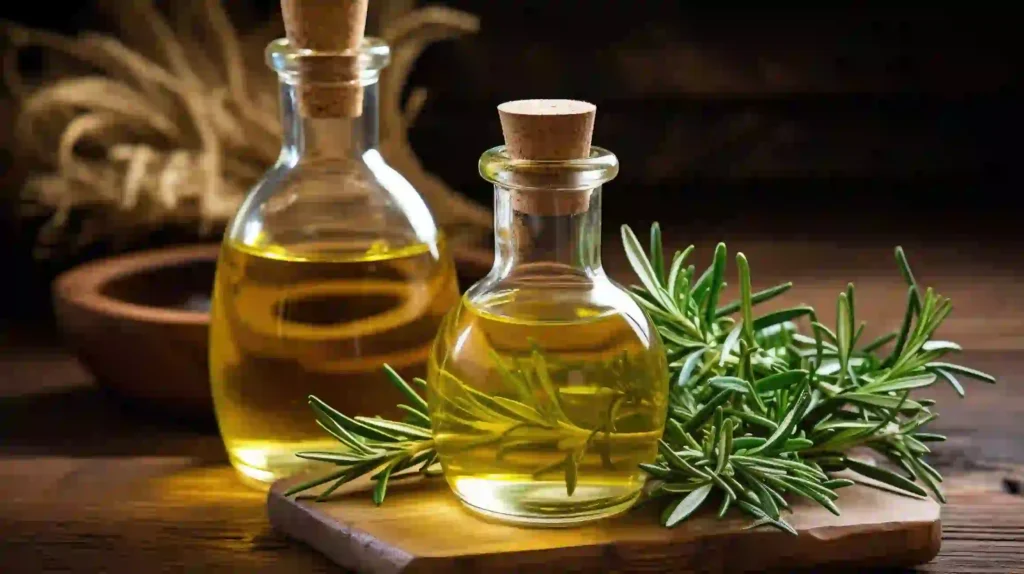
- Rosemary oil stimulates hair follicles, leading to improved hair growth and reduced hair thinning. It also enhances hair strength.
- It has natural antiseptic properties that help maintain a healthy scalp by reducing dandruff and itching.
- Rosemary oil increases blood flow to the scalp, nourishing hair follicles and promoting stronger hair.
- Regular use of rosemary oil can reduce hair loss by strengthening hair roots and preventing premature shedding.
- It can make your hair shiny and healthy by adding moisture and balancing the scalp’s oil production.
How To Use Rosemary Hair Oil
Scalp Massage
- Mix a few drops of rosemary oil with a carrier oil like coconut or jojoba oil. Gently massage this blend into your scalp.
- Do this 1-2 times a week to improve hair growth and scalp health.
- Leave the oil on for at least 30 minutes or overnight, then wash it out with a mild shampoo.
Add To Shampoo
- Add a few drops of rosemary oil to your regular shampoo. Shake well to mix.
- Include this shampoo as part of your regular washing routine.
- This method helps distribute the benefits of rosemary oil throughout your hair while washing.
Conditioning Treatment
- Add a few drops of rosemary oil to your conditioner. Apply it to your hair, focusing mainly on the ends.
- Use this treatment once a week.
- Leave the conditioner in for a few minutes, then rinse to let the
2: Peppermint Oil Benefits For Thin Hairs
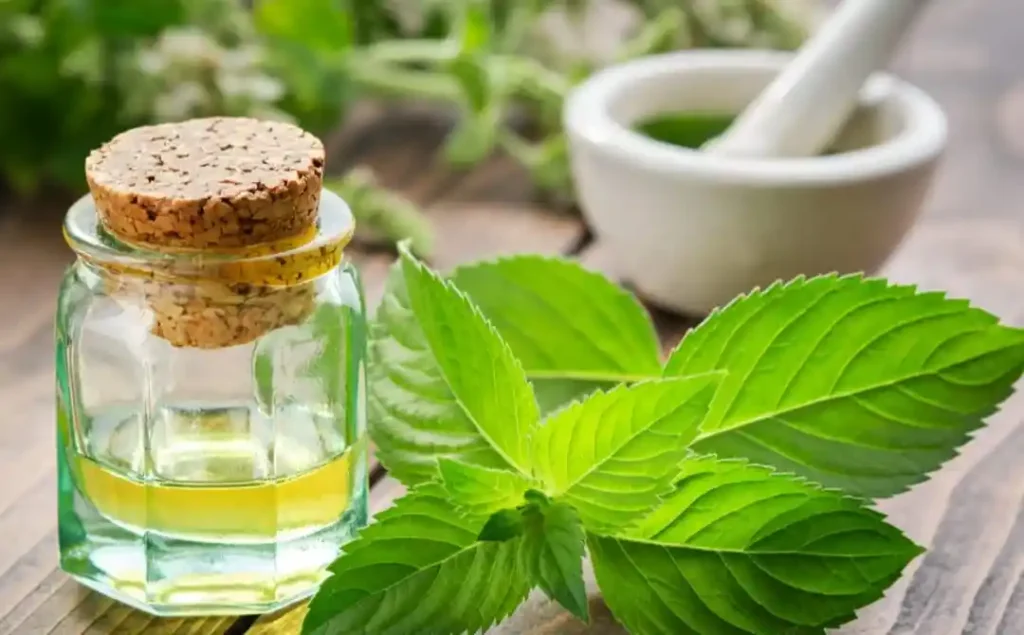
- Peppermint oil has a cooling effect that improves blood circulation in the scalp. This enhanced circulation nourishes hair follicles and helps maintain a healthy scalp.
- Peppermint oil contains menthol, which stimulates hair follicles, potentially increasing hair growth and thickness.
- By improving scalp health and strengthening hair roots, peppermint oil can reduce hair loss and prevent premature shedding.
- Peppermint oil regulates oil production on the scalp, making it beneficial for both oily and dry scalps.
- Its cooling and anti-inflammatory properties can relieve itchy and uncomfortable scalp conditions.
How To Use Peppermint Oil
Scalp Massage
- Dilute a small amount of peppermint oil with a carrier oil like coconut or jojoba oil. Gently massage this blend into your scalp.
- Use this treatment 1-2 times a week to stimulate hair follicles and improve scalp health.
- Leave the oil on for at least 15-30 minutes before washing it out with a mild shampoo.
Add To Shampoo
- Add a few drops of peppermint oil to your regular shampoo. Shake the bottle well to ensure the oil is evenly mixed.
- Incorporate this shampoo into your regular hair washing routine.
Conditioning Treatment
- Add a few drops of peppermint oil to your conditioner. Apply it to your hair, focusing on the ends.
- Use this treatment once a week.
- Leave the conditioner on for a few minutes before rinsing to allow the peppermint oil to benefit your hair.
DIY Hair Mask
- Combine peppermint oil with a hydrating base like yogurt or honey. Apply this mask to your scalp and hair.
- Use this mask once a week for deep conditioning and stimulation.
- Cover your hair with a shower cap after applying the mask to enhance the treatment’s effectiveness.
3: Benefits of Lavender Oil For Thin Hairs
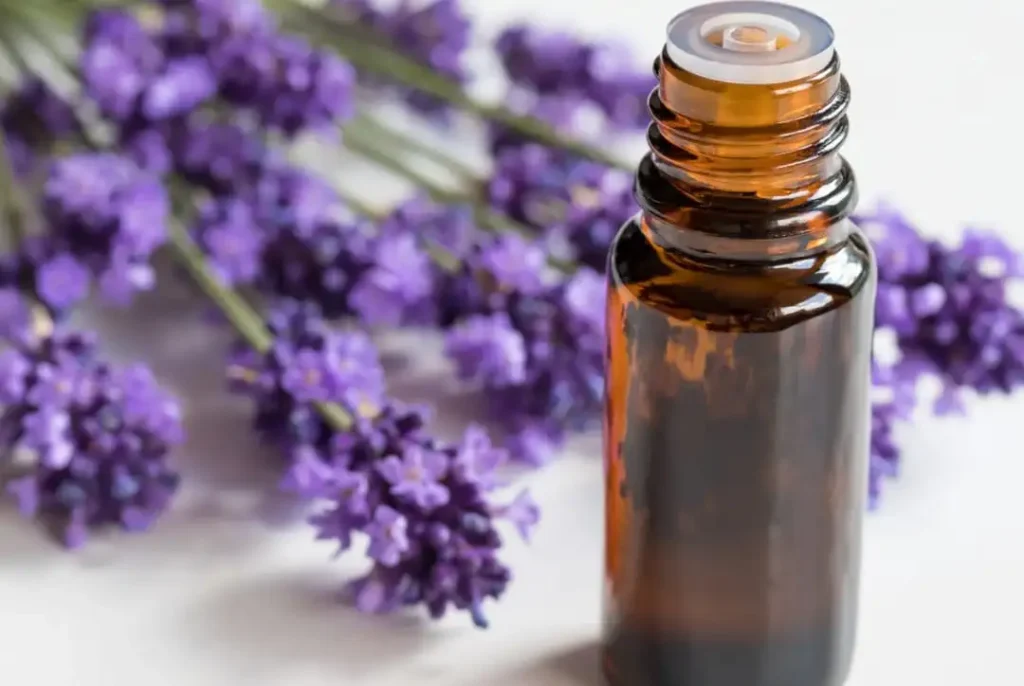
- Lavender oil can stimulate hair follicles, leading to increased hair growth.
- Its ability to improve blood circulation in the scalp helps supply essential nutrients to hair roots, promoting thicker and faster hair growth.
- The oil has strong antimicrobial and antibacterial properties, which can help prevent common scalp issues such as dandruff, itchiness, and infections.
- Regular use can maintain a healthy scalp, which is essential for healthy hair.
- Lavender oil is effective in reducing hair thinning by combating factors like stress, hormonal imbalances, and scalp infections that often lead to hair loss.
- Its soothing properties help in reducing stress, which is a significant contributor to hair loss.
- When mixed with a carrier oil, lavender oil can serve as a natural conditioner, leaving hair softer, shinier, and more manageable.
- Its moisturizing properties help in maintaining hair’s natural sheen and preventing dryness.
- The anti-inflammatory properties of lavender oil can help soothe an irritated scalp, reducing inflammation and associated conditions such as seborrheic dermatitis and psoriasis.
How To Use Lavender Oil
Scalp Massage
- Dilute a few drops of lavender oil with a carrier oil like coconut or jojoba oil. Gently massage this blend onto your scalp.
- Use this treatment 1-2 times a week to improve scalp health and hair growth.
- Leave the oil on for at least 30 minutes or overnight, then wash it out with a mild shampoo.
Add To Shampoo
- Add a few drops of lavender oil to your regular shampoo. Shake well to ensure the oil is evenly mixed.
- Make this lavender-infused shampoo a part of your regular washing routine.
- This method distributes the benefits of lavender oil during hair washing, which helps improve scalp and hair health.
Conditioning Treatment
- Add a few drops of lavender oil to your conditioner. Apply it to your hair, focusing mainly on the ends.
- Use this treatment once a week.
- Leave the conditioner on for a few minutes before rinsing to maximize the benefits of the lavender oil.
DIY Hair Mask
- Combine lavender oil with a hydrating base like honey or yogurt to create a mask. Apply this mask to your scalp and hair.
- Use this mask once a week for deep conditioning and nourishment.
- After applying the mask, cover your hair with a shower cap to enhance the treatment’s effectiveness.
4: Benefits of Cedarwood Oil For Thin Hairs
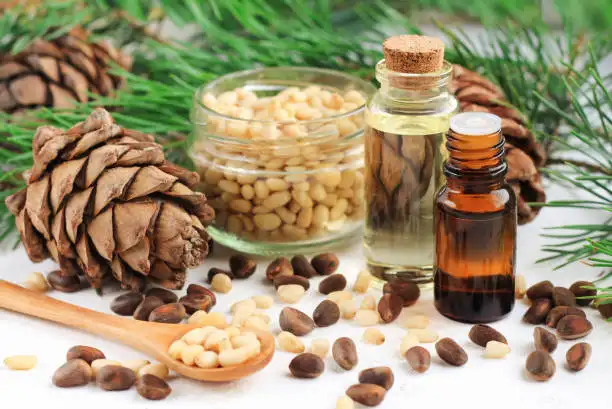
- Cedarwood oil stimulates the scalp, balances oil production, and keeps hair follicles healthy, which encourages hair growth and reduces hair loss.
- Its anti-inflammatory and antifungal properties reduce dandruff, a common cause of hair loss, and strengthen the hair shaft.
- For oily hair, cedarwood oil regulates sebum production, keeping the scalp balanced and clean without causing excessive dryness.
- It has soothing properties that provide relief from itchy and flaky scalp conditions, making it beneficial for issues like seborrheic dermatitis.
Usage of Cedarwood Oil
Cedarwood Oil Scalp Massage
- Mix 4-5 drops of cedarwood oil with 2 tablespoons of a carrier oil (like coconut or olive oil), massage into the scalp, and leave it on for 30 minutes to overnight before washing it off.
- Use 2-3 times a week.
5: Benefits of Jojoba Oil For Thin Hairs
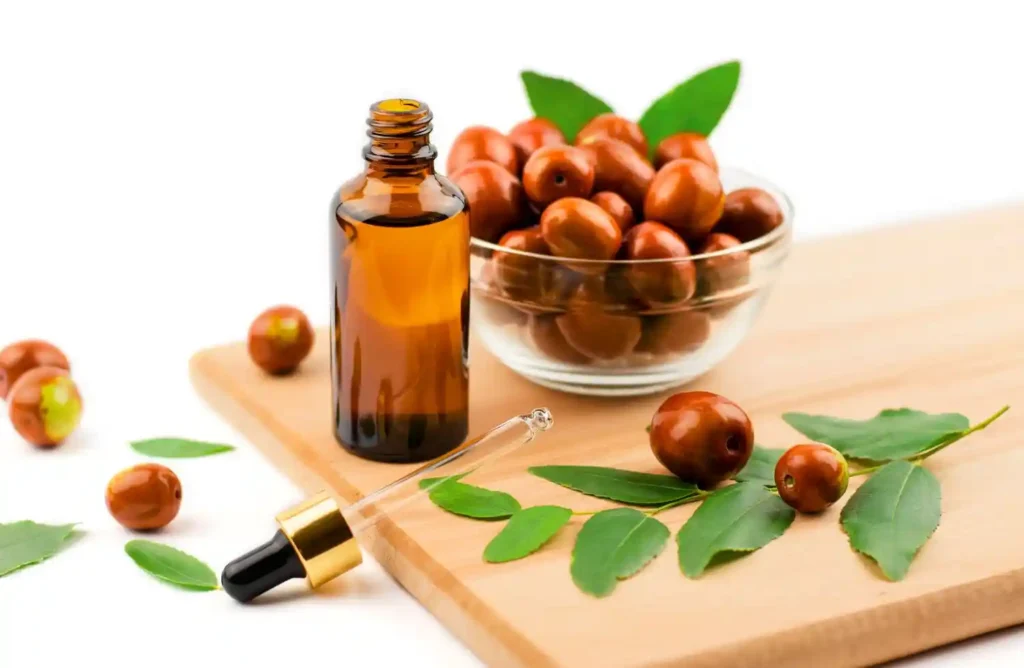
- Jojoba oil effectively moisturizes and conditions the scalp and hair, particularly for dry or damaged hair, restoring natural shine and softness.
- It contains vitamins and minerals that strengthen hair follicles, reducing breakage and split ends.
- By nourishing the scalp and unclogging hair follicles, it reduces hair loss and promotes hair growth.
- Jojoba oil helps balance oil production for all hair types.
Usage of Jojoba Oil
Jojoba Oil Hair Mask
- Mix 2 tablespoons of jojoba oil with 1 tablespoon of honey and an optional egg yolk.
- Apply to damp hair, cover with a shower cap, and leave for 30-45 minutes before rinsing.
- Use once a week.
Cedarwood And Jojoba Oil Blend
- Mix 3-4 drops of cedarwood oil with 2 tablespoons of jojoba oil.
- Apply to the scalp and hair, leave it on for 30 minutes to an hour, and then wash off.
Precautions For Using Essential Oils
Always Dilute with A Carrier Oil
- Essential oils are highly concentrated and should never be applied directly to the skin or scalp.
- Always dilute them with a carrier oil like coconut, olive, or jojoba oil to prevent skin irritation or allergic reactions.
Conduct A Patch Test
- Before using any essential oil on a larger area, perform a patch test.
- Apply a small amount of the diluted oil to a patch of skin (like the inside of your elbow) and wait 24 hours to check for any allergic reactions or irritation.
Avoid Contact with Eyes And Mucous Membranes
- Essential oils should be kept away from sensitive areas like the eyes, nose, and mouth. If contact occurs, rinse thoroughly with water or use a carrier oil to help remove the oil from the area.
Be Cautious During Pregnancy And Breastfeeding
- Some essential oils can be harmful during pregnancy or while breastfeeding. Always consult with a healthcare provider before using essential oils during these periods.
Store Oils Properly
- Essential oils should be stored in dark glass bottles away from direct sunlight and heat to maintain their potency and prevent them from becoming rancid.
Avoid Prolonged Sun Exposure
- Some essential oils, especially citrus oils like lemon, orange, or bergamot, can increase the skin’s sensitivity to UV rays, leading to sunburn or pigmentation. Avoid direct sunlight or use sunscreen if you’ve applied these oils.
- Use twice a week.
Personal Opinion
Incorporate protein-rich foods, like eggs and nuts, for stronger hair; include omega-3 fatty acids from fish or flax seeds for shine; and consume biotin-rich foods like spinach and sweet potatoes to support hair growth.
Reduce stress through regular exercise or meditation, avoid excessive heat styling and chemical treatments, and ensure adequate sleep to support hair health and prevent thinning.
Pros
Promotes Hair Growth
- Essential oils like rosemary and peppermint can stimulate hair follicles and improve blood circulation, encouraging thicker and faster hair growth.
Reduces Hair Loss
- Oils like cedarwood and lavender have properties that help reduce hair loss by strengthening hair follicles and balancing scalp conditions.
Natural And Chemical-Free
- Essential oils offer a natural alternative to chemical-laden hair products, minimizing exposure to harsh ingredients that can further damage thin hair.
Improves Scalp Health:
- Essential oils with antimicrobial and antifungal properties, like tea tree oil, can treat dandruff and other scalp issues that may contribute to hair thinning.
Cons
Potential For Allergic Reactions
- Essential oils can cause allergic reactions or skin irritation if not properly diluted or if you have sensitive skin.
Time-Consuming
- Regular application and massage with essential oils can be time-consuming and require consistent effort to see results.
Risk of Overuse
- Overusing essential oils can lead to scalp irritation, dryness, or even worsening of hair thinning, especially if the oils are not used in appropriate concentrations.
Limited Scientific Evidence
- While many people report benefits, there is limited scientific evidence to support the effectiveness of essential oils for treating hair thinning, and results may vary from person to person.
Frequently Asked Questions
Is changing your lifestyle good for hair growth?
Yes, changing your lifestyle can have a significant positive impact on hair growth. Regular exercise, a balanced diet, and sufficient sleep not only improve your hair health but also make your skin look much more glowing.
What precautions should be taken after applying essential oils?
After applying essential oil, you should avoid direct sun exposure for at least 24 hours. Essential oils can increase your skin’s sensitivity to sunlight, so using sunscreen or covering the area can help prevent irritation or burns.
Can essential oil be applied directly to hair?
Essential oil should generally not be applied directly to hair without dilution. It’s best to mix it with a carrier oil before applying to avoid irritation.

